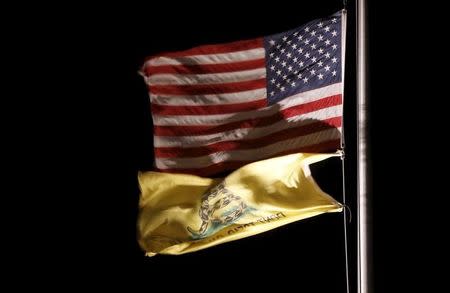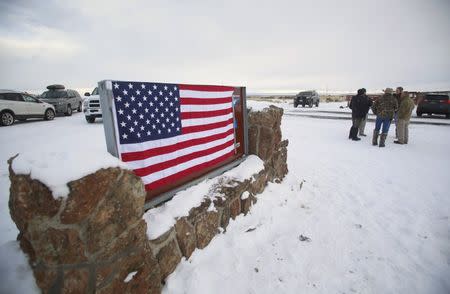Closing arguments wrap up on conspiracy trial of Oregon militants
(Story corrects name to David Fry instead of Fray in paragraph 2)
By Scott Bransford
PORTLAND, Ore. (Reuters) - Closing arguments drew to an end on Wednesday in the trial of six men and a woman charged with conspiracy in the armed takeover of a U.S. wildlife center in Oregon, as defense lawyers offered differing summations urging acquittal of their clients.
One attorney argued that his client, David Fry, the last of the occupiers to surrender in February, was a confused man who suffers from mental illness and found himself caught up in a dangerous protest. Others portrayed the 41-day occupation as a legitimate effort to stand up for civil liberties and rally to the cause of rural people.
Prosecutors got the last word, presenting a brief rebuttal argument reiterating the government's case that the seven defendants engaged in a lawless scheme to seize government property by armed force.
The U.S. District Court jury in Portland was set to begin deliberations on Thursday. Judge Anna Brown instructed the 12-member panel late Wednesday on how they should apply the law to facts in the case.
The summations followed weeks of testimony from prosecution and defense witnesses, some of whom took part in the siege at Malheur National Wildlife Refuge in remote eastern Oregon that began in early January.
The occupiers say they acted out of solidarity for two Oregon ranchers they believed were unfairly punished in an arson case, and to protest their larger grievance against federal control over millions of acres of public land in the West.
Attorney Marcus Mumford, representing the leader of the takeover, Ammon Bundy, argued on Tuesday the defendants were manipulated by federal agents through government informants who infiltrated the protest and influenced the course of events.
Bundy's brother Ryan, acting as his own counsel, focused during his summation on Wednesday on what he called "the loss of freedom in America."
Assistant U.S. Attorney Craig Gabriel countered that the defense was trying to change the subject.
"The FBI is not on trial here, ladies and gentlemen," he told the jurors. "This was a dangerous and armed standoff."
He also argued that the defendants' claims of seeking to confiscate the refuge under an obscure doctrine of property law called "adverse possession" was itself an admission they were conspiring to prevent federal employees who worked there from returning.
The Bundy brothers and five others are charged with conspiracy to impede federal officers through intimidation, threats or force, as well as with possession of firearms in a federal facility and theft of government property.
Each faces up to six years in prison if convicted of conspiracy alone.
(Editing by Steve Gorman)


